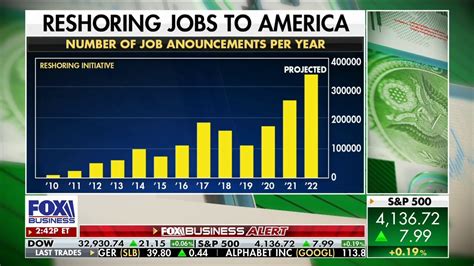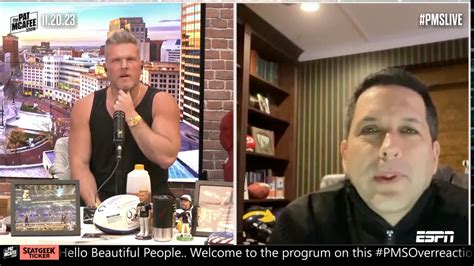
Scottie Pippen believes “shoo-insourcing”—strategically bringing manufacturing jobs back to the United States—could be a key solution to revitalizing the American economy and bringing back jobs lost over decades due to outsourcing. The NBA legend is partnering with an Alabama-based shoe manufacturer, attempting to demonstrate the viability and benefits of domestic production.
Scottie Pippen is championing a return to American manufacturing, suggesting that what he terms “shoo-insourcing” could represent a significant economic opportunity for the United States. Speaking about the potential of domestic production, Pippen emphasized that “a lot of Americans lost jobs because things are being made overseas,” and that reshoring these manufacturing jobs could help reinvigorate local economies and create employment opportunities. He is putting his words into action by collaborating with an American shoe manufacturer, aiming to prove that producing goods domestically can be both economically feasible and beneficial for American workers. This initiative taps into a growing movement that seeks to reverse the trend of outsourcing, focusing on the long-term advantages of keeping production and jobs within the U.S.
Pippen’s advocacy is rooted in the observation that the decline in American manufacturing has had a tangible impact on communities across the country. He argues that by strategically focusing on “shoo-insourcing,” the U.S. can not only bring back jobs but also regain greater control over its supply chains, reduce reliance on foreign producers, and foster innovation and growth within the domestic economy. The initiative highlights the potential for celebrities and public figures to play a role in promoting economic development and supporting American businesses.
The collaboration between Pippen and the Alabama-based shoe manufacturer represents a practical application of the shoo-insourcing concept. By demonstrating the viability of producing footwear in the U.S., the partnership aims to serve as a model for other industries and companies considering reshoring their operations. This initiative seeks to address not only the economic benefits of domestic production but also the social and environmental advantages, such as reducing transportation costs and supporting local communities.
The broader context of Pippen’s advocacy lies within the ongoing debate about globalization, trade policies, and the future of American manufacturing. The trend of outsourcing, which began in the late 20th century, has led to the relocation of many manufacturing jobs to countries with lower labor costs. While this has resulted in cost savings for companies, it has also contributed to job losses and economic decline in many American communities. The shoo-insourcing movement seeks to reverse this trend by highlighting the benefits of domestic production, such as higher quality, faster delivery times, and greater control over the supply chain.
Pippen’s initiative aligns with a growing sentiment among policymakers, business leaders, and consumers that the U.S. needs to invest in its manufacturing capabilities to remain competitive in the global economy. This includes efforts to promote innovation, improve workforce skills, and create a more favorable regulatory environment for domestic producers. The success of Pippen’s partnership with the shoe manufacturer could serve as a catalyst for further investments in American manufacturing and a broader shift towards shoo-insourcing.
The concept of shoo-insourcing, while seemingly niche, is part of a much larger conversation surrounding economic nationalism, supply chain resilience, and the future of work in a technologically advanced world. As companies increasingly face pressure to balance cost efficiency with ethical and social considerations, the idea of bringing production closer to home is gaining traction. Pippen’s high profile involvement provides increased visibility for this movement, potentially inspiring more companies and entrepreneurs to explore the possibilities of domestic manufacturing.
The challenges of shoo-insourcing are significant, however. The higher labor costs in the U.S. compared to many overseas manufacturing hubs present a major hurdle. Additionally, companies may face challenges in finding skilled workers and accessing the necessary infrastructure and resources to support domestic production. Overcoming these obstacles will require a concerted effort from government, industry, and educational institutions to create a more supportive ecosystem for American manufacturers.
Despite these challenges, the potential benefits of shoo-insourcing are substantial. In addition to creating jobs and boosting local economies, domestic production can also lead to greater innovation, improved product quality, and enhanced customer satisfaction. By reducing reliance on foreign suppliers, companies can also mitigate the risks associated with supply chain disruptions, such as those experienced during the COVID-19 pandemic.
Pippen’s involvement brings a new level of visibility to the shoo-insourcing movement, leveraging his celebrity status to raise awareness and inspire action. His advocacy highlights the potential for individuals from diverse backgrounds to contribute to economic development and support American businesses. The success of his partnership with the Alabama-based shoe manufacturer could serve as a powerful example of the benefits of domestic production and encourage other companies to follow suit.
The future of American manufacturing will depend on a variety of factors, including government policies, technological advancements, and consumer preferences. However, the shoo-insourcing movement represents a promising approach to revitalizing the sector and creating a more resilient and sustainable economy. By focusing on the advantages of domestic production and investing in the skills and infrastructure needed to support it, the U.S. can regain its position as a global manufacturing leader and create lasting economic opportunities for its citizens.
Scottie Pippen’s foray into manufacturing advocacy underscores a broader trend of celebrities and athletes using their platforms to champion social and economic causes. His support for shoo-insourcing highlights the potential for these figures to play a meaningful role in shaping public discourse and driving positive change. By lending his voice to the cause of American manufacturing, Pippen is helping to raise awareness and inspire action among businesses, policymakers, and consumers.
The focus on shoe manufacturing in particular is strategically significant. The footwear industry has a long history in the United States, but it has been significantly impacted by outsourcing. By focusing on this sector, Pippen and his partners are aiming to demonstrate the potential for revitalizing a traditional American industry through shoo-insourcing. The success of this initiative could pave the way for similar efforts in other sectors, such as textiles, apparel, and electronics.
The choice of Alabama as the location for the shoe manufacturing partnership is also noteworthy. Alabama has a strong manufacturing base and a skilled workforce, making it an attractive location for companies looking to reshore their operations. The state has also made significant investments in infrastructure and workforce development to support the growth of its manufacturing sector. By partnering with an Alabama-based company, Pippen is aligning himself with a state that is committed to promoting American manufacturing.
The economic benefits of shoo-insourcing extend beyond job creation. Domestic production can also lead to increased tax revenues, reduced reliance on government assistance programs, and a stronger sense of community pride. By supporting American manufacturers, consumers can also help to ensure that products are made in accordance with ethical and environmental standards. The shoo-insourcing movement represents a holistic approach to economic development that takes into account the social, environmental, and economic impacts of manufacturing.
The challenges of competing with low-cost foreign producers are real, but they are not insurmountable. By focusing on innovation, quality, and customer service, American manufacturers can differentiate themselves from their competitors and justify the higher costs associated with domestic production. Additionally, the growing demand for sustainable and ethically produced goods is creating new opportunities for American manufacturers. Consumers are increasingly willing to pay a premium for products that are made in the U.S.A. and that support American jobs.
The role of government in promoting shoo-insourcing is also critical. Government policies can incentivize domestic production through tax credits, subsidies, and procurement preferences. Additionally, government can invest in infrastructure, workforce development, and research and development to support the growth of the American manufacturing sector. By creating a more favorable regulatory environment for domestic producers, government can help to level the playing field and make it easier for companies to reshore their operations.
The shoo-insourcing movement is not without its critics. Some argue that it is unrealistic to expect American manufacturers to compete with low-cost foreign producers on a large scale. Others contend that shoo-insourcing is a form of protectionism that will harm international trade and raise prices for consumers. However, proponents of shoo-insourcing argue that the benefits of domestic production outweigh the costs and that it is necessary to protect American jobs and national security.
The debate over shoo-insourcing is likely to continue as the U.S. grapples with the challenges of globalization and the future of work. However, the movement represents a promising approach to revitalizing American manufacturing and creating a more resilient and sustainable economy. By focusing on the advantages of domestic production and investing in the skills and infrastructure needed to support it, the U.S. can regain its position as a global manufacturing leader and create lasting economic opportunities for its citizens. Scottie Pippen’s involvement has undeniably amplified the conversation, bringing a fresh perspective to a complex issue.
The long-term success of shoo-insourcing will depend on the ability of American manufacturers to adapt to changing market conditions and compete effectively in the global economy. This will require a commitment to innovation, quality, and customer service, as well as a willingness to invest in new technologies and workforce development. It will also require a supportive regulatory environment and a strong partnership between government, industry, and educational institutions. With the right policies and investments, the shoo-insourcing movement has the potential to transform the American economy and create a more prosperous future for all.
Pippen’s initiative provides a tangible example of how celebrities can contribute to economic revitalization. His collaboration not only draws attention to the potential of shoo-insourcing but also offers a model for other high-profile individuals seeking to make a difference in their communities. By actively participating in the manufacturing process and advocating for American jobs, Pippen is demonstrating a commitment to creating positive change that goes beyond mere endorsement.
The emphasis on shoes as the initial product for shoo-insourcing is also strategic due to the historical significance of the footwear industry in the U.S. Once a cornerstone of American manufacturing, the shoe industry experienced significant decline due to outsourcing. Revitalizing this sector could serve as a powerful symbol of the potential for broader economic resurgence through strategic reshoring efforts. Furthermore, shoes are a consumer product with consistent demand, making them a viable starting point for demonstrating the feasibility and benefits of domestic production.
Another crucial aspect of shoo-insourcing is its potential impact on supply chain resilience. The COVID-19 pandemic exposed the vulnerabilities of global supply chains, highlighting the risks of relying heavily on foreign producers. By bringing manufacturing back to the U.S., companies can reduce their dependence on overseas suppliers and create more secure and reliable supply chains. This can lead to greater stability and predictability in production, as well as reduced transportation costs and lead times.
The environmental benefits of shoo-insourcing are also worth considering. By reducing the distance that goods must travel from factory to consumer, companies can lower their carbon footprint and reduce greenhouse gas emissions. Additionally, domestic manufacturers are often subject to stricter environmental regulations than their foreign counterparts, which can lead to cleaner and more sustainable production practices. By supporting American manufacturers, consumers can help to promote environmental stewardship and reduce the environmental impact of their purchases.
The challenges of workforce development are significant, but they can be overcome with the right investments and strategies. Community colleges and vocational schools can play a key role in training workers for manufacturing jobs, providing them with the skills and knowledge they need to succeed. Apprenticeship programs can also be an effective way to train workers on the job, combining classroom instruction with hands-on experience. By investing in workforce development, the U.S. can ensure that it has a skilled workforce ready to meet the demands of the 21st-century economy.
The success of shoo-insourcing will ultimately depend on the willingness of consumers to support American-made products. By choosing to buy products that are made in the U.S.A., consumers can help to create jobs, boost local economies, and promote economic growth. Consumers can also look for products that are made in accordance with ethical and environmental standards, ensuring that their purchases are aligned with their values. By making informed choices, consumers can play a powerful role in shaping the future of American manufacturing.
In conclusion, Scottie Pippen’s advocacy for shoo-insourcing represents a significant step towards revitalizing American manufacturing and creating a more resilient and sustainable economy. His partnership with an Alabama-based shoe manufacturer demonstrates the potential for domestic production to create jobs, boost local economies, and reduce reliance on foreign suppliers. While the challenges of shoo-insourcing are real, the potential benefits are substantial. By focusing on innovation, quality, and customer service, and by investing in workforce development and a supportive regulatory environment, the U.S. can regain its position as a global manufacturing leader and create lasting economic opportunities for its citizens. The combination of Pippen’s celebrity, a strategic industry choice, and a focus on supply chain resilience and environmental responsibility makes shoo-insourcing a compelling approach to economic development in the 21st century.
Frequently Asked Questions (FAQ)
-
What is “shoo-insourcing” and how does it differ from traditional insourcing?
“Shoo-insourcing,” as coined in the article, refers to the strategic process of bringing shoe manufacturing jobs back to the United States. While conceptually aligned with broader insourcing or reshoring initiatives, it emphasizes the return of a specific industry – footwear – to American soil. Traditional insourcing generally involves bringing business functions or processes that were previously outsourced back within the company or to a domestic location, regardless of the specific industry. Scottie Pippen uses the term to advocate for a targeted approach focusing initially on the shoe industry, leveraging its historical significance and potential for job creation within the U.S. This strategy is intended to demonstrate a tangible model that can be replicated in other sectors.
-
Why is Scottie Pippen, a former NBA player, advocating for shoo-insourcing?
Scottie Pippen, leveraging his public platform, is advocating for shoo-insourcing due to his concern about the loss of American jobs caused by outsourcing. As stated in the article, Pippen believes “a lot of Americans lost jobs because things are being made overseas.” His involvement aims to raise awareness and inspire action by partnering with an Alabama-based shoe manufacturer to demonstrate the economic viability and benefits of domestic production. Pippen’s celebrity status provides significant visibility to the issue, potentially influencing businesses, policymakers, and consumers to consider the merits of reshoring manufacturing operations. His motivation appears to be rooted in a desire to contribute to American economic development and create opportunities for American workers.
-
What are the potential economic benefits of shoo-insourcing for the United States?
The potential economic benefits of shoo-insourcing are multifaceted. Primarily, it can lead to job creation within the United States, reinvigorating local economies and reducing unemployment. Domestic production can also result in increased tax revenues for both state and federal governments, which can be reinvested in public services and infrastructure. Furthermore, shoo-insourcing can reduce reliance on government assistance programs, as more individuals are employed and self-sufficient. By shortening supply chains, companies can reduce transportation costs and lead times, enhancing their competitiveness. Lastly, it fosters a stronger sense of community pride and supports ethical and environmental standards in manufacturing.
-
What are the main challenges associated with shoo-insourcing and how can they be overcome?
The main challenges associated with shoo-insourcing include higher labor costs in the U.S. compared to overseas manufacturing hubs, difficulty in finding skilled workers, and the need for substantial investment in infrastructure and resources. These challenges can be overcome through several strategies. Government policies can incentivize domestic production through tax credits, subsidies, and procurement preferences. Investments in workforce development programs, such as community colleges and apprenticeship programs, can help to address the skills gap. Automation and advanced manufacturing technologies can increase productivity and reduce labor costs. Finally, companies can differentiate themselves by focusing on innovation, quality, and customer service, justifying the higher costs associated with domestic production.
-
How can consumers contribute to the success of the shoo-insourcing movement?
Consumers play a vital role in the success of the shoo-insourcing movement. By consciously choosing to purchase products made in the U.S.A., consumers can directly support American jobs and boost local economies. They can also look for products that are made in accordance with ethical and environmental standards, ensuring that their purchases align with their values. Supporting American manufacturers sends a clear signal to businesses that there is a demand for domestically produced goods, encouraging more companies to reshore their operations. Additionally, consumers can advocate for government policies that support American manufacturing and promote shoo-insourcing initiatives. By making informed choices and voicing their preferences, consumers can significantly influence the future of American manufacturing.









